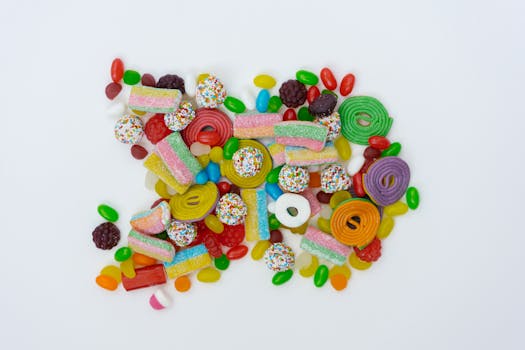Licorice may seem like a harmless sweet treat to humans, but when it comes to dogs, it’s important to think twice before sharing. While some foods are perfectly safe for dogs, others can pose serious health risks. So, can dogs eat licorice? Let’s explore the potential dangers, symptoms to watch for, and advice from veterinarians to keep your pup healthy and safe.
🍬 What Is Licorice and Why Do Dogs Like It?
Licorice is a chewy candy made from the root of the licorice plant (Glycyrrhiza glabra). It has a sweet, distinctive flavor that many people enjoy, and its scent may attract your dog, too. However, licorice candies often contain added ingredients like sugar, artificial flavors, and even harmful substances like xylitol.
Dogs are naturally curious about the food their owners eat, and the smell of something sweet can be irresistible. But just because your dog shows interest doesn’t mean it’s safe to share.
⚠️ Risks of Licorice for Dogs
Licorice can pose several risks to your dog’s health, especially if consumed in large amounts. Here are the main reasons why licorice is not a dog-friendly snack:
- Contains glycyrrhizin, which can cause high blood pressure and low potassium levels
- High sugar content, which may lead to obesity, dental issues, and diabetes
- May include xylitol, a sugar substitute that is highly toxic to dogs
- Potential for gastrointestinal upset, including vomiting and diarrhea
While a tiny nibble of plain licorice root may not be harmful, the risks far outweigh any potential benefits.
🐾 Symptoms of Licorice Toxicity in Dogs
If your dog eats licorice, they may show symptoms of toxicity or digestive distress. Keep an eye out for these warning signs:
- Vomiting
- Diarrhea
- Lethargy
- Increased thirst or urination
- Muscle weakness
- High blood pressure (may cause restlessness or panting)
In severe cases, glycyrrhizin toxicity can lead to heart problems or kidney damage. If you suspect your dog has eaten licorice, monitor them closely and contact your vet immediately if symptoms occur.
🍭 What About Licorice Root Supplements?
Licorice root is sometimes used in herbal supplements for dogs to help with issues like inflammation or digestive upset. However, these products are typically administered under veterinary supervision and in carefully controlled doses. The raw licorice root you find in candies or teas is not the same as the formulations used in pet-safe supplements.
Never give your dog licorice root or any supplement without consulting your veterinarian first. Even natural remedies can be harmful if misused.
🐕 Safer Treat Alternatives for Dogs
If your dog is craving a treat, there are plenty of safe and healthy options to choose from. Here are some alternatives to licorice that your dog will love:
- Carrot sticks
- Apple slices (remove seeds and core)
- Blueberries
- Banana slices
- Plain, unsweetened peanut butter (in moderation)
These treats are not only safe but also provide nutritional benefits for your dog. Always introduce new foods gradually and monitor your dog for any adverse reactions.
🩺 Vet Advice: What to Do If Your Dog Eats Licorice
If your dog accidentally eats licorice, take the following steps:
- Determine how much licorice was consumed and check the ingredients for harmful substances like xylitol.
- Call your veterinarian or a pet poison hotline for guidance.
- Monitor your dog closely for symptoms of toxicity or digestive upset.
- Follow your vet’s advice, which may include inducing vomiting or bringing your dog in for treatment.
Prompt action can make a big difference in preventing serious health issues. Even if your dog seems fine, it’s always better to err on the side of caution and consult a professional.
FAQs
Can dogs eat black licorice? No, black licorice is not safe for dogs. It contains glycyrrhizin and often high levels of sugar or artificial sweeteners that can be harmful.
Is red licorice safer for dogs? Red licorice typically contains less licorice root but is still high in sugar and may contain xylitol. It’s best to avoid giving any type of licorice to your dog.
What should I do if my dog eats licorice? Contact your vet immediately. Provide details about the type and amount of licorice consumed so they can recommend the best course of action.
Can dogs have licorice-flavored treats? Many licorice-flavored products for humans contain artificial ingredients that are unsafe for dogs. Stick to dog-specific treats instead.
Are there any benefits of licorice root for dogs? Licorice root may have medicinal uses for dogs, but it should only be given under the guidance of a veterinarian.
References
Book a $49 online vet consultation at https://www.dialavet.com for fast, expert advice.























